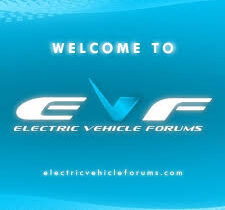Electric car warranty is a critical aspect of owning or leasing an electric vehicle, as it plays a significant role in protecting your investment and ensuring peace of mind. Understanding the details of an electric car warranty can help you make informed decisions about your vehicle purchase or lease and can influence how you manage and maintain your electric car. An electric car warranty typically covers various components and systems that are essential for the vehicle’s operation, including the battery, powertrain, and other electrical systems. However, the specifics of what is covered can vary significantly between manufacturers and models, so it is crucial to understand the warranty terms to fully benefit from the protection it offers.

One of the most important aspects of an electric car warranty is the coverage of the battery. The battery is one of the most expensive components of an electric vehicle, and its performance directly impacts the car’s range and overall functionality. Most manufacturers offer an extended warranty for the battery, often ranging from 8 to 10 years or up to 100,000 miles. This coverage typically includes protection against defects and performance issues that could affect the battery’s capacity or efficiency. Given the critical role the battery plays in an electric vehicle, an extended electric car warranty for the battery provides valuable protection and can help alleviate concerns about potential battery degradation over time.
In addition to battery coverage, an electric car warranty generally includes protection for the powertrain, which encompasses the electric motor, drivetrain, and associated components. Powertrain warranties for electric vehicles often mirror those of traditional internal combustion engine vehicles, typically offering coverage for around 5 to 8 years or up to 60,000 to 100,000 miles. This coverage ensures that any issues with the electric motor or drivetrain are addressed, providing reassurance that the core functionality of the vehicle is protected. Understanding the extent of powertrain coverage in your electric car warranty can help you plan for maintenance and repairs and ensure that you are prepared for any potential issues that may arise.
Electrical systems and components are another critical area covered by an electric car warranty. Electric vehicles rely heavily on advanced electrical systems for their operation, including sophisticated control units, sensors, and software. Warranties for these systems often cover defects and malfunctions, ensuring that issues with the vehicle’s electrical systems are addressed without incurring additional costs. It is essential to review the specific terms of your warranty to understand what is covered and any limitations that may apply. For example, some warranties may have exclusions for certain components or conditions that are not covered, so being aware of these details can help you manage potential repair costs effectively.
One key consideration when evaluating an electric car warranty is the warranty’s coverage for wear and tear items. While many warranties cover major components and systems, they may not include coverage for parts that experience regular wear and tear, such as tires, brakes, or wiper blades. Understanding what is and isn’t covered by your warranty can help you anticipate additional maintenance costs and plan accordingly. Some manufacturers offer extended warranty options or maintenance packages that can provide additional coverage for these items, so exploring these options can help you maintain your vehicle in top condition.
Another important factor to consider is the warranty’s coverage for roadside assistance. Many electric car warranties include roadside assistance services, which can be particularly valuable for electric vehicles. Roadside assistance can provide support in case of emergencies such as running out of battery power or experiencing a breakdown. This coverage can offer peace of mind and ensure that you have access to help when you need it. Reviewing the specifics of the roadside assistance included in your warranty can help you understand the services available and how to access them if needed.
In summary, understanding the electric car warranty is crucial for ensuring that you are fully protected and informed about your vehicle’s coverage. Key components of an electric car warranty typically include battery coverage, powertrain protection, electrical systems, and sometimes roadside assistance. By familiarizing yourself with the terms and conditions of your warranty, you can make informed decisions about your electric vehicle, manage potential repair and maintenance costs, and enjoy greater peace of mind. As electric vehicles continue to advance and become more widespread, having a comprehensive and well-understood electric car warranty will play an essential role in supporting your ownership experience and ensuring that your investment is protected.


















I’m really enjoying the design and layout of your blog. It’s a very easy on the eyes which makes it much more pleasant for me to come here and visit more often. Did you hire out a designer to create your theme? Great work!